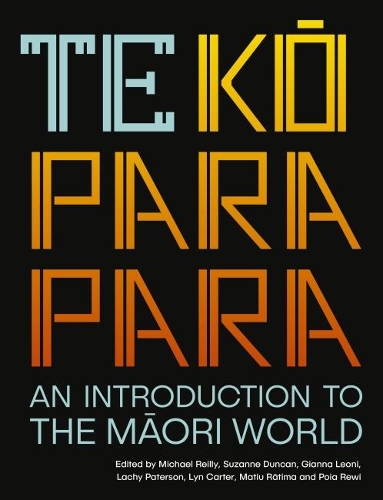
Te Koparapara: An Introduction to the Maori World
(Paperback)
Publishing Details
Te Koparapara: An Introduction to the Maori World
By (Author) Michael Reilly
Edited by Suzanne Duncan
Edited by Gianna Leoni
Edited by Lachy Paterson
Edited by Matiu Ratima
Edited by Poia Rewi
Auckland University Press
Auckland University Press
10th May 2018
New Zealand
Classifications
Tertiary Education
Non Fiction
305.899442
Physical Properties
Paperback
474
Description
Ka rite te kopara e ko nei i te ata It is like a bellbird singing at dawn. Like the clear morning song of te koparapara, the bellbird, this book aims to allow the Maori world to speak for itself through an accessible introduction to Maori culture, history and society from an indigenous perspective. In twenty-one illustrated chapters, leading scholars introduce Maori culture (including tikanga on and off the marae and key rituals like powhiri and tangihanga), Maori history (from the beginning of the world and the waka migration through to Maori protest and urbanisation in the twentieth century), and Maori society today (including twenty-first century issues like education, health, political economy and identity). Each chapter provides a descriptive narrative covering the major themes, written in accessible formal English, including appropriate references to te reo Maori and to the wider Pacific. Chapters are illustrated with a mixture of images, maps and diagrams as well as relevant songs and sayings. Te Koparapara is an authoritative and accessible introduction to the past, present and future of the Maori world for students and general readers.
Author Bio
Most of the editors research and teach at Te Tumu, the School of Maori, Pacific and Indigenous Studies at the University of Otago, one of the most significant clusters of research-active Maori Studies scholars in the country. They live in Otepoti (Dunedin), in Te Waipounamu, also known as the South Island, which lies under the mana of the people of this land, Kai Tahu. Maori who live in the southern parts of Te Waipounamu historically called the bellbird `te koparapara', and the editors have chosen this local version of the bird's name for the book's title to acknowledge the people of this place.
